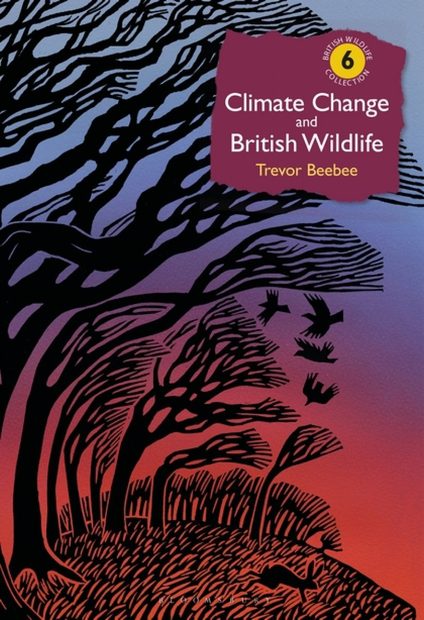![Climate Change and British Wildlife Climate Change and British Wildlife]()
Click to have a closer look
About this book
Contents
Customer reviews
Biography
Related titles
About this book
Take a look at our recent interview with author Trevor Beebee, where we chat to him about the background behind the book, his thoughts on conservation and his hopes for the future of British wildlife. Read the full conversation on the NHBS blog.
There is no escaping the fact that the British climate is changing, and our wildlife is changing with it. Warmer and wetter winters, combined with longer summers, have worked to the advantage of some plants such as the rare Lady Orchid and a whole range of insects including butterflies, crickets and dragonflies. Many are moving their range edges northwards, while spring flowers and butterflies are appearing earlier year on year. Britain is also hosting new arrivals that come in on the wing, especially dragonflies and damselflies. But it isn't all good news. Alpine plants and seabirds – particularly Kittiwakes – are suffering declines as our climate warms.
Britain has the longest history of wildlife recording anywhere in the world and we are in pole position for studying how climate has influenced our flora and fauna over at least decades and, in some cases, centuries. In this latest volume in the British Wildlife Collection, Trevor Beebee examines the story so far for our species and their ecosystems, and considers how they may respond in the future. For conservationists, coping with habitat loss and the associated species declines has proved challenging enough in the past; now we must also consider ways to tackle the additional pressures that come with climate change.
Contents
Preface 6
1. What's going on 10
2. How are plants responding? 38
3 Invertebrate tales 74
4 Freshwater and terrestrial vertebrates 118
5 Fungi, lichens and microbes 162
6 Freshwater and terrestrial connnnunlties 180
7 Coastal and marine environments 214
8 As time goes by 244
9 What the future may hold 266
10 Conservation in a warming world 306
References 338
Abbreviations 344
Species names 345
Credits 352
Index 354
Customer Reviews
Biography
Trevor Beebee is emeritus professor of Evolution, Behaviour and Environment at the University of Sussex and a trustee of the Amphibian and Reptile Conservation Trust. He has worked on the ecology and genetics of British amphibian populations for more than 40 years, and has published more than 200 scientific papers and articles on those subjects. His previous books include Ecology and Conservation of Amphibians and Amphibians and Reptiles with Richard Griffiths in the New Naturalist series. In 2009 he was awarded Fellowship Honoris Causa by the British Naturalists' Association.
Monograph
By: Trevor JC Beebee(Author)
368 pages, colour photos, colour illustrations, colour tables
"[...] Beebee's book is a novel addition to the literature as it compiles evidence on many aspects of British wildlife. [...] This is a well-illustrated and thought-provoking text."
– Antoinette Mannion, The Niche (British Ecological Society magazine), June 2019
"[...] For anyone interested in natural history, Climate Change and British Wildlife is a hugely important read. A painstaking volume of research has evidently been invested in producing this book, with the author's own decades of observation and expertise also playing their part. Purely for its topic, this was always going to be a difficult book to write. It has to be acknowledged that Beebee has done a brilliant job of capturing the hard facts of science within this book, yet presenting what could easily prove an exhausting topic in an insightful and compelling manner – even if it is disconcerting to read of what the future may hold for Britain's often imperilled wildlife. It comes thoroughly recommended."
– Josh Jones, Birdguides
"This is a must-read for anyone with an interest in British wildlife. [...] Climate Change and British Wildlife is a carefully crafted book, providing an in depth look at the current knowledge available about the impact of climate change on our wildlife. The triumph of this book is the level of detail whilst being an engaging read."
– Claire Boothby, BTO book reviews
"[...] This is not [...] a dry read and it will appeal to the general naturalist as well as the specialist. [...] This is the sixth volume of the British Wildlife Collection and it maintains its established standard of excellence. Based upon its content and style, I think that this is the best environmental book that I have read in a long time."
– John Hopkins, British Wildlife 30(2), December 2018
''Fascinating but frightening, compelling and concerning [...] this book brings together all you need to know about how the climate is impacting wildlife."
– Chris Packham















































